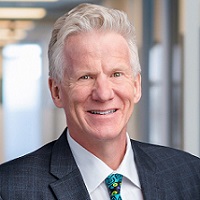 By Nick van Terheyden aka Dr Nick, Principal, ECG Management Consulting
By Nick van Terheyden aka Dr Nick, Principal, ECG Management Consulting
Twitter: @drnic1
Host of Healthcare Upside Down – #HCupsidedown
You don’t have to look far to find stories of poor customer service ruining what was supposed to be a special experience. It happens in hotels, airports, restaurants, and any number of other settings, and the outcomes can range from nuisance to catastrophe (think Southwest Airlines last December).
But in healthcare, bad service exacerbates a situation that may already be stressful. The news is filled with stories of “surprise” bills—just to be clear, the only surprised party is the patient, and the reason for the surprise is the lack of transparency. I personally have been brought to tears by the automated and indifferent denial systems that ignore clinically valid decisions and thorough, thoughtful medical decision-making.
Episode NOW on Demand
If you have not personally been through the healthcare system, lucky you. But you may have seen how it works through the eyes of a loved one. It can be jarring to watch a patient struggle with systems that seem indifferent or cruel at a time when they’re already suffering. Overlaying a poor user experience on top of that just adds unnecessarily to the misery.
On the other hand, think back to a positive user experience you had—maybe an exceptional night out at a restaurant. Chance are, it wasn’t just the meal that made the evening so memorable, but also the servers who made you feel taken care of and special. The food might have been delicious, but it was probably an individual or some aspect of the service that made the night stand out.
Can we create the same experiences in healthcare? Sarah Richardson thinks so. Today Sarah is SVP and chief digital and information officer at Tivity Health. But she began her career in hotel operations, opening massive hotels and resorts in Las Vegas and around the world. She still has a soft spot for the hospitality industry, and sees parallels between hotel and hospital operations. On this episode she talks about the need for empathy, efficiency, and understanding in the care setting. Below are a few excerpts.
Making the best of a difficult experience.
“When you’re in the hospital, you’re at your most vulnerable. [Providers] have got to be able to connect with people at the human level. [Patients] need you to be empathetic, they need you to care, they need you to create something that says, ‘I [know you] don’t really want to be here, but I’m going to make it feel like you had an amazing experience while you were here.’”
Hospitality in hotels—and hospitals.
“It’s the support services. That’s why hospitals and hotels aren’t that different in some aspects. All the support services create the environment that allows clinicians to be their best selves, whether that’s housekeeping, food services, technology in the background—everybody’s supporting the capability for them to do their best work. Because if you’re the nurse or the doctor, you’re the only person that can literally save that person’s life.”
Technology only gets us so far.
“We’ve added technology to help streamline the medical journey, but we haven’t made the medical journey itself any better. You still have to call quite often for an appointment. And if you’re not calling, maybe you can use technology to get the appointment, but your wait times are still three or four weeks. So we haven’t made healthcare easier. We’ve only made the digitization of what used to be paper processes more streamlined. The system itself, to me, is still broken.”
This article was originally published on the ECG Management Consulting blog and is republished here with permission.
About the Show
The US spends more on healthcare per capita than any other country on the planet. So why don’t we have superior outcomes? Why haven’t the principles of capitalism prevailed? And why do American consumers have so much trouble accessing and paying for healthcare? Dive into these and other issues on Healthcare Upside/Down with ECG principal Dr. Nick van Terheyden and guest panelists as they discuss the upsides and downsides of healthcare in the US, and how to make the system work for everyone.
Tune in weekdays at 9am, 5pm, and 1am ET.
Join the conversation on Twitter at #HCupsidedown.
